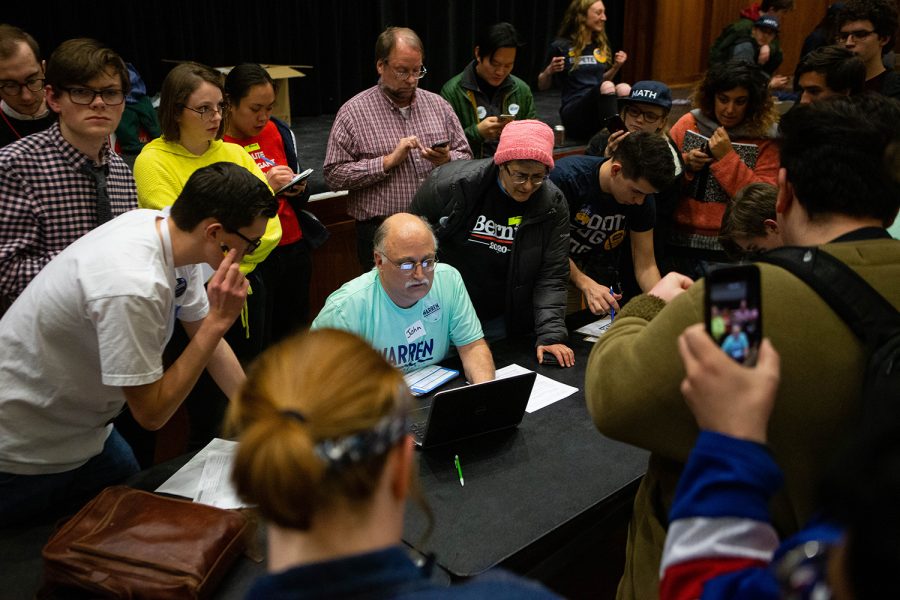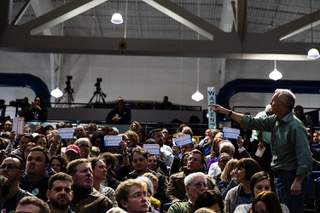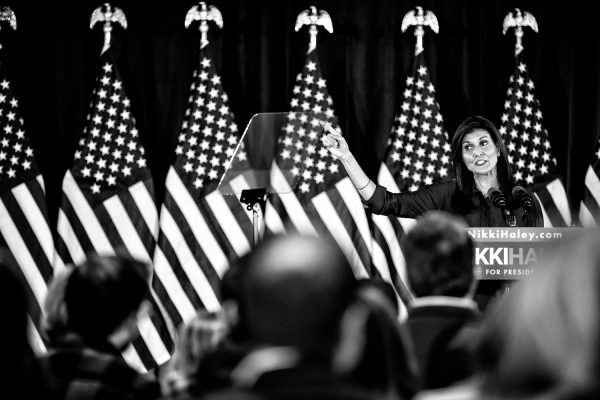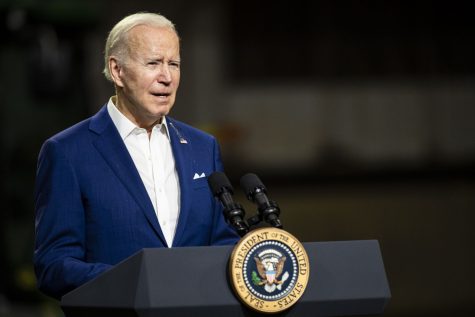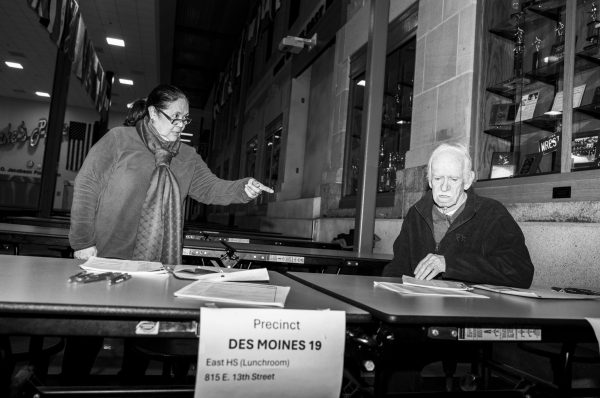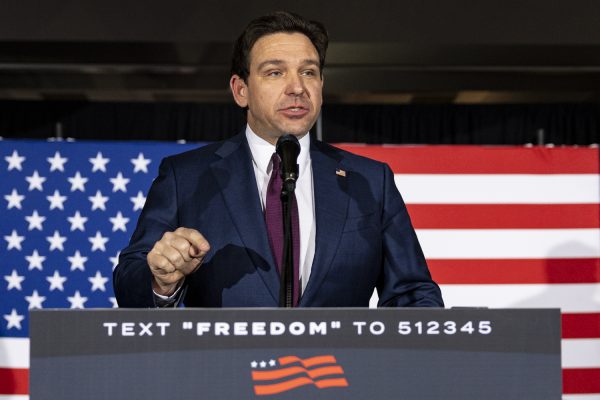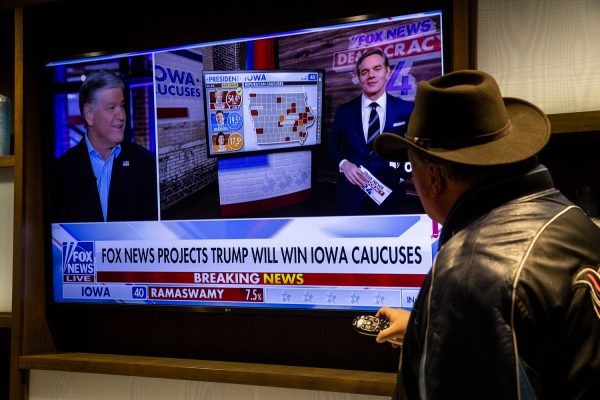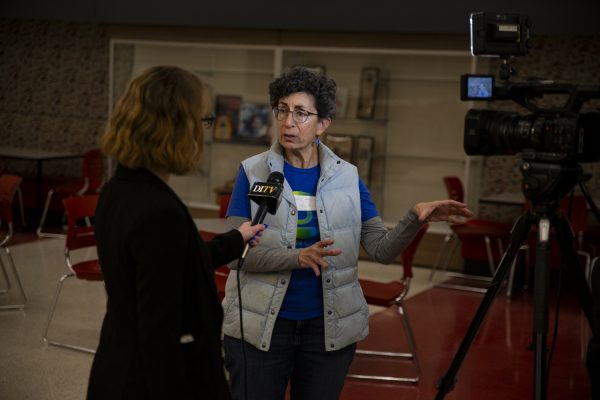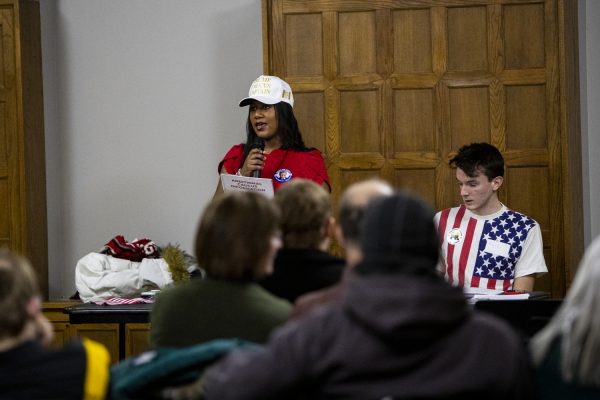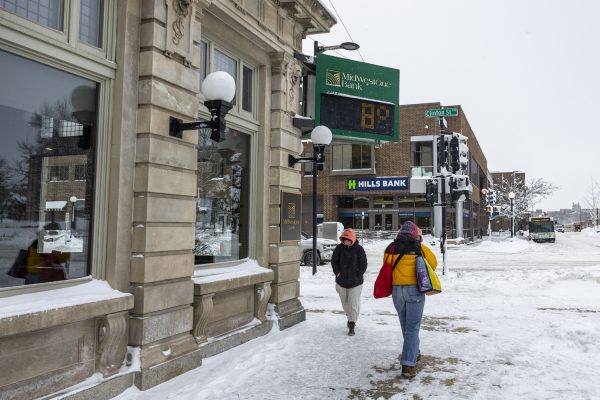Rule changes bring unpredictability to Iowa caucuses
Changes to the precinct reporting system delayed the results of the Iowa caucus – but there were many other significant rule changes caucusgoers experienced Wednesday night. The new headcount system, online check-in, and new viability threshold made the caucus process run more efficiently in some cases, and slower in others.
John Deeth, volunteer from Johnson County Democrats, recounts before assigning delegates during the caucus at the Iowa Memorial Union on Monday February 3, 2020.
February 4, 2020
New changes in the caucus rules could have impacted the delay in results of the Iowa caucuses, though some caucusgoers said certain changes helped the night to run more smoothly.
A phone app designed to allow precinct captains to easily report results did not work according to plan Monday evening, and by midnight, there were no official results from caucus sites.
Other new rules implemented by the Iowa Democratic Party allowed many caucusgoers to leave the event early. If candidates reached viability, they could leave after the first headcount, and Iowans wrote down their presidential preference on cards, providing a paper record of caucusgoers’ candidate choices.
Despite the delay in results, some precinct captains said the delegate card reporting system helped the caucuses to run more smoothly.
Josh Haugo, a precinct captain for Pete Buttigieg in Ankeny, said around 130 people showed up to the caucus, which awarded four delegates.
“It went pretty smooth this year,” Haugo said. “The preference cards helped keep the numbers square, and overall it was much smoother than it has been in the past. I think the cards make the caucus run better and provide accountability if there are any challenges later.”
Cathleen Simpson, a precinct captain for Buttigieg in West Des Moines, said that her experience caucusing in 2020 was much smoother than in 2016.
Simpson said using the preference card system was “immensely better” than only counting by heads, though waiting for results after the technical errors can be frustrating.
“I was reporting the results immediately to the campaign,” Simpson said. “I understand there was a technical glitch. We all use computers, we’re all very tolerant when our phones crash, we fire them back up again. We’re less apt to forgive crashes when we’re all waiting for results.”
Simpson attended Buttigieg’s watch party, where attendees left around midnight with an unofficial declaration of victory from Buttigieg.
In a statement, the Iowa Democratic Party said the paper trail provided from the headcount cards was being used to determine results.
“We found inconsistencies in the reporting of three sets of results. In addition to the tech systems being used to tabulate results, we are also using photos of results and a paper trail to validate that all results match and ensure that we have confidence and accuracy in the numbers we report,” the statement read.
Joanne Tubbs, who caucused at Callanan Middle School in Des Moines, said the option to check in online made the process more efficient.
“I think this year was much smoother in every element. Even prior to tonight I felt more informed as a caucusgoer because we had early check-in. I could check in online and that helped distribute people who were arriving,” Tubbs said.
Statements from the Biden campaign criticized the Iowa Democratic Party, saying “acute failures were occurring statewide.”
Alyssa Mackemie, a precinct captain for Elizabeth Warren at Des Moines Precinct 23, said accessing the app to report results within her caucus location was difficult.
“Only the precinct captains had to use the apps. We didn’t have great service in our [caucus location] – it was really hard to get on the app itself,” Mackemie said. “In general, writing things down, our chairs had to count four different times … it was kind of scary.”
Mackemie also had concerns about accessibility at her caucuses. She said it was difficult to find chairs for caucusgoers who needed accommodations.
Simpson said although the caucus process for her was overall more efficient than in 2016, the Iowa Democratic Committee could reconsider if the caucuses are accessible events.
“I would like to see the Democratic party in Iowa revisit the true strength of the caucus – are we being totally inclusive, or are we excluding people because of the one hour on the one day,’ Simpson said. “People with work can’t come in, people with kids can’t come in, elderly people who can’t stand for a couple hours – it’s leaving them out and they’re reluctant to go because of this restriction.”



